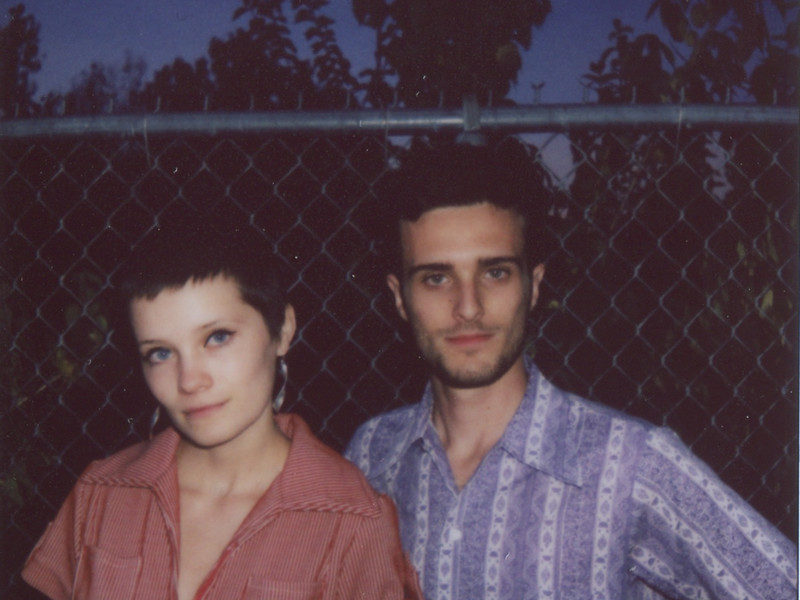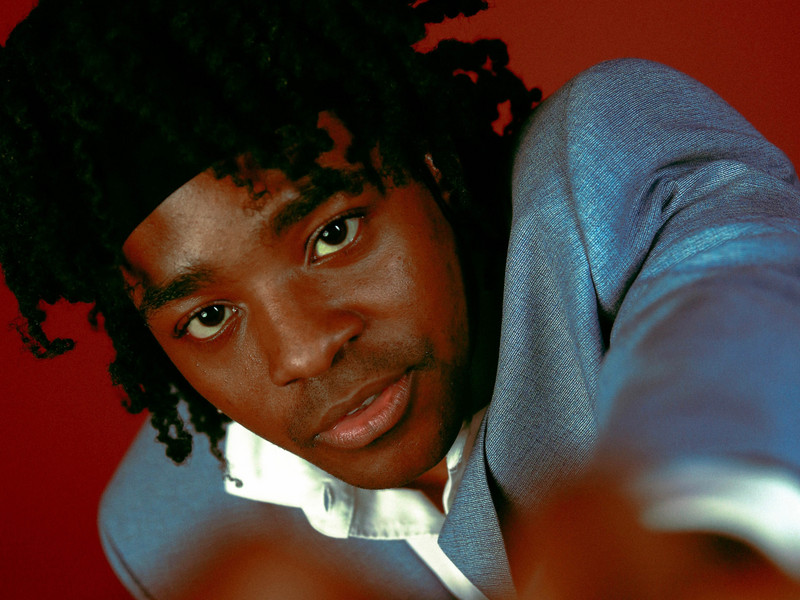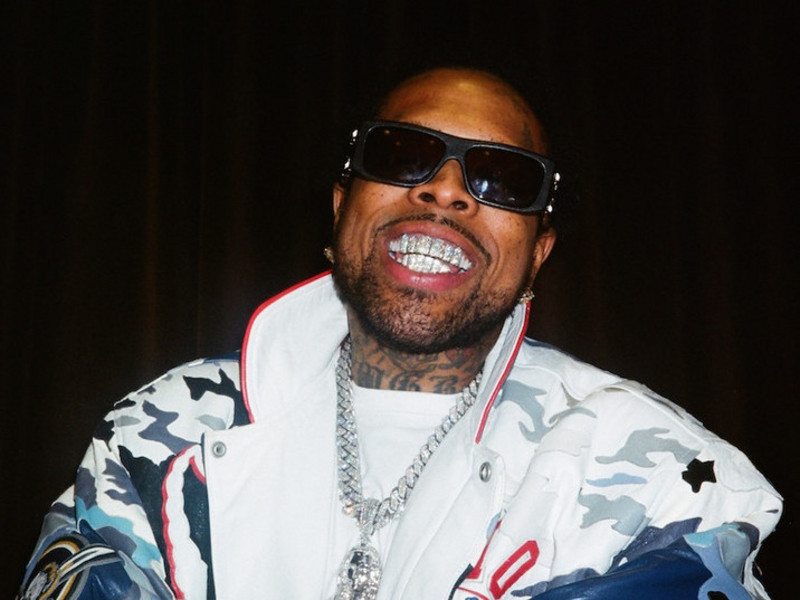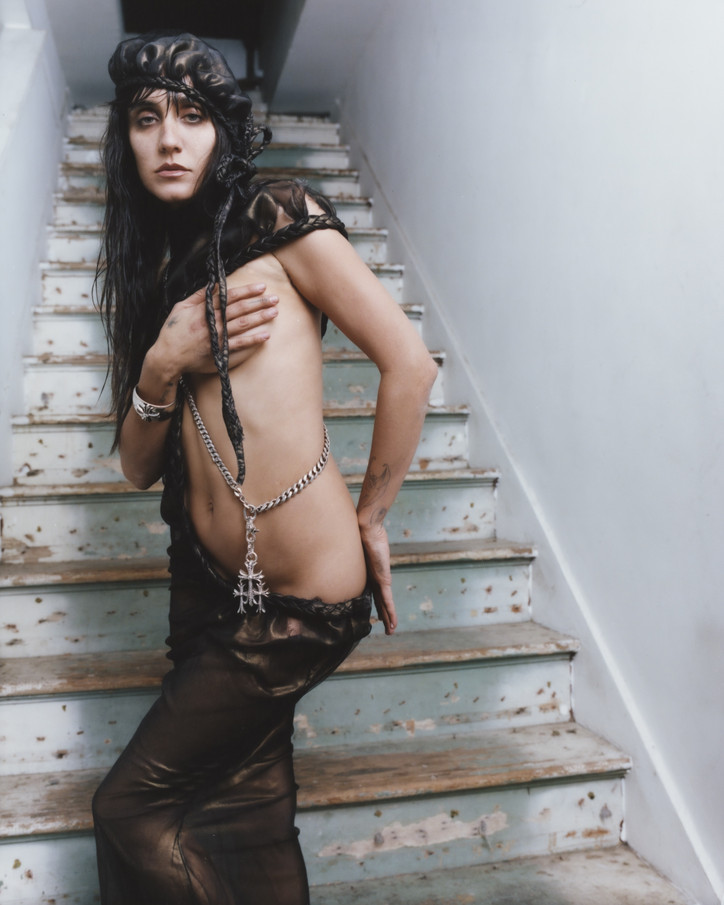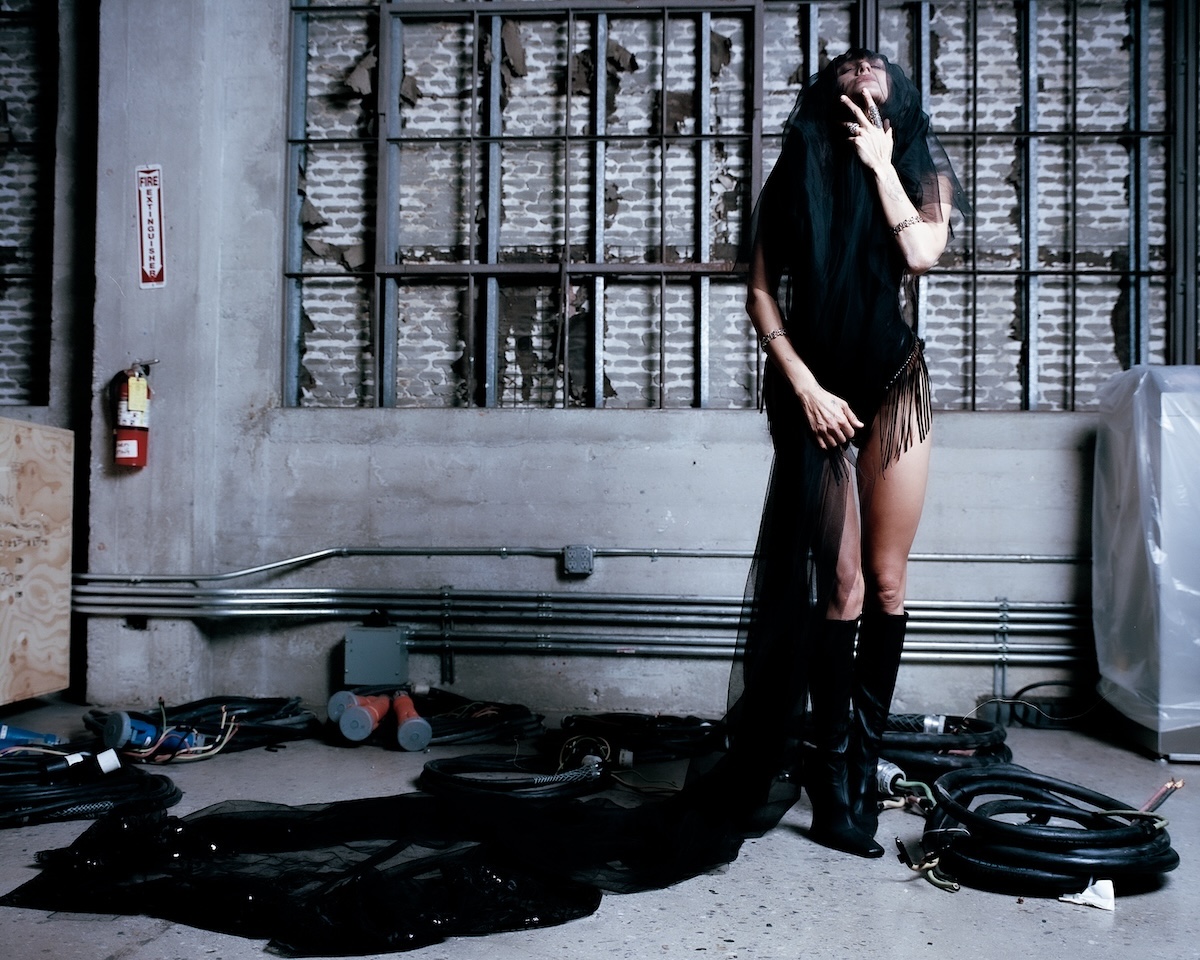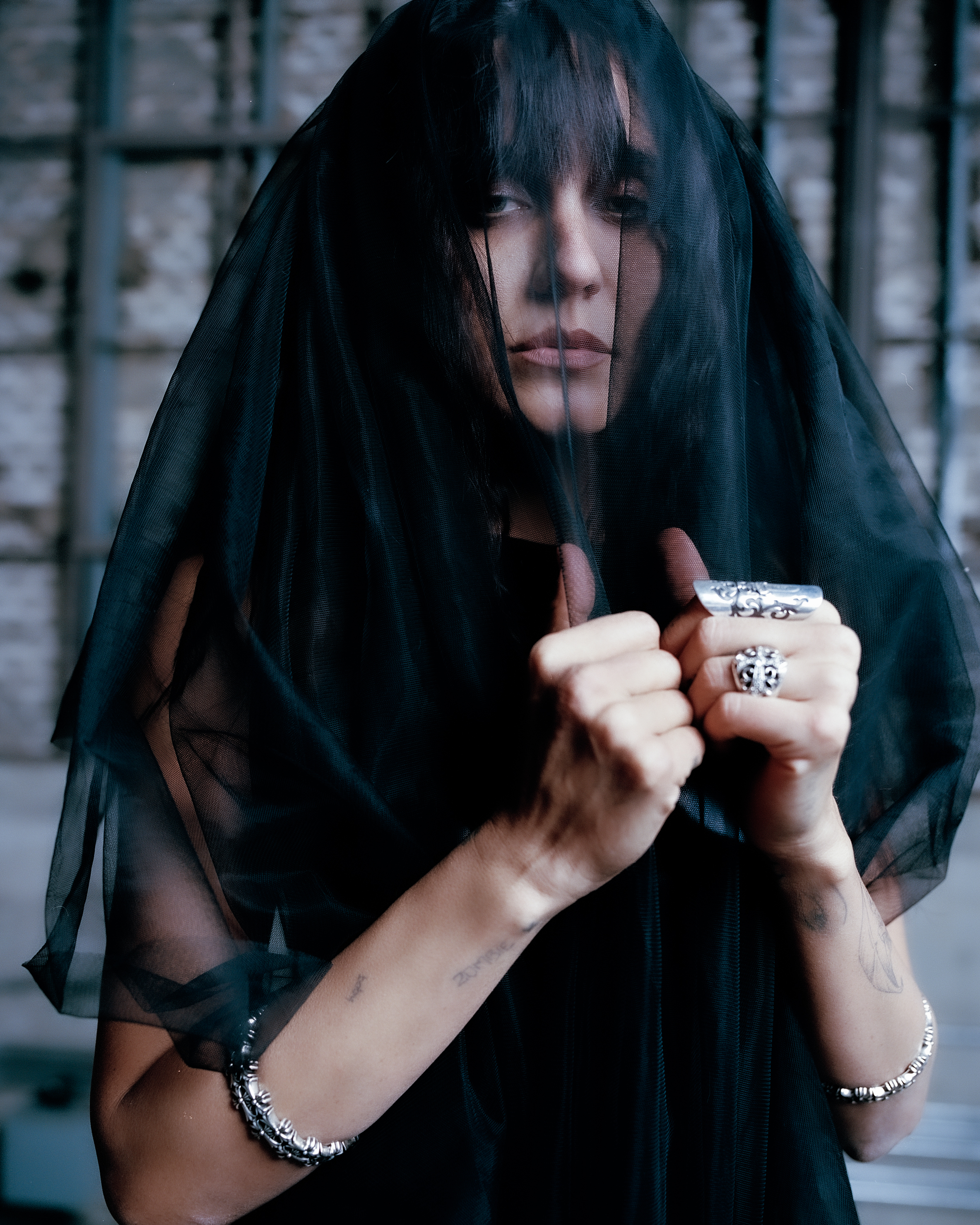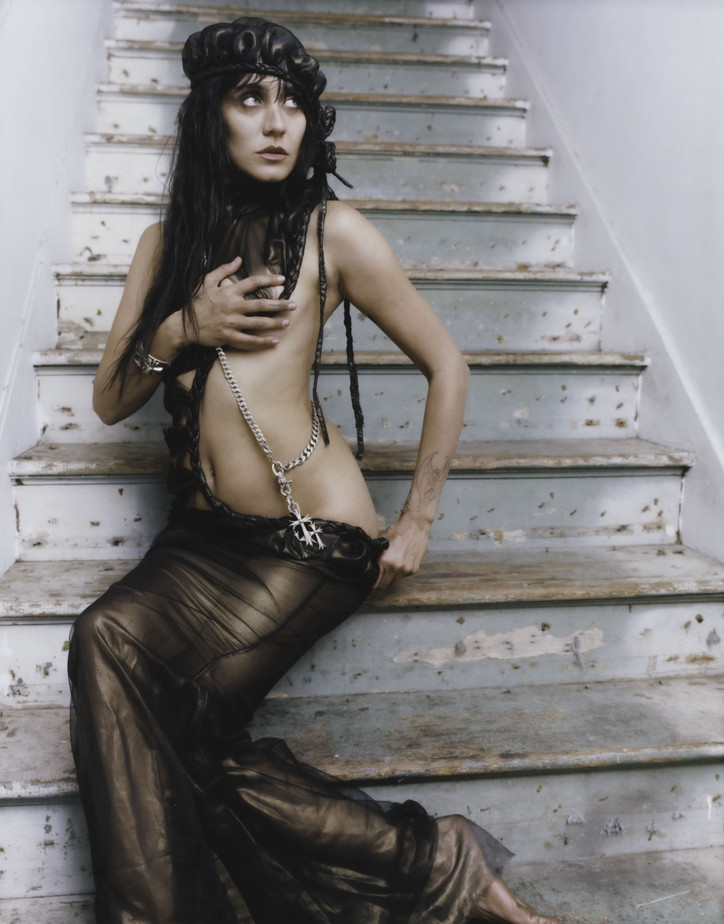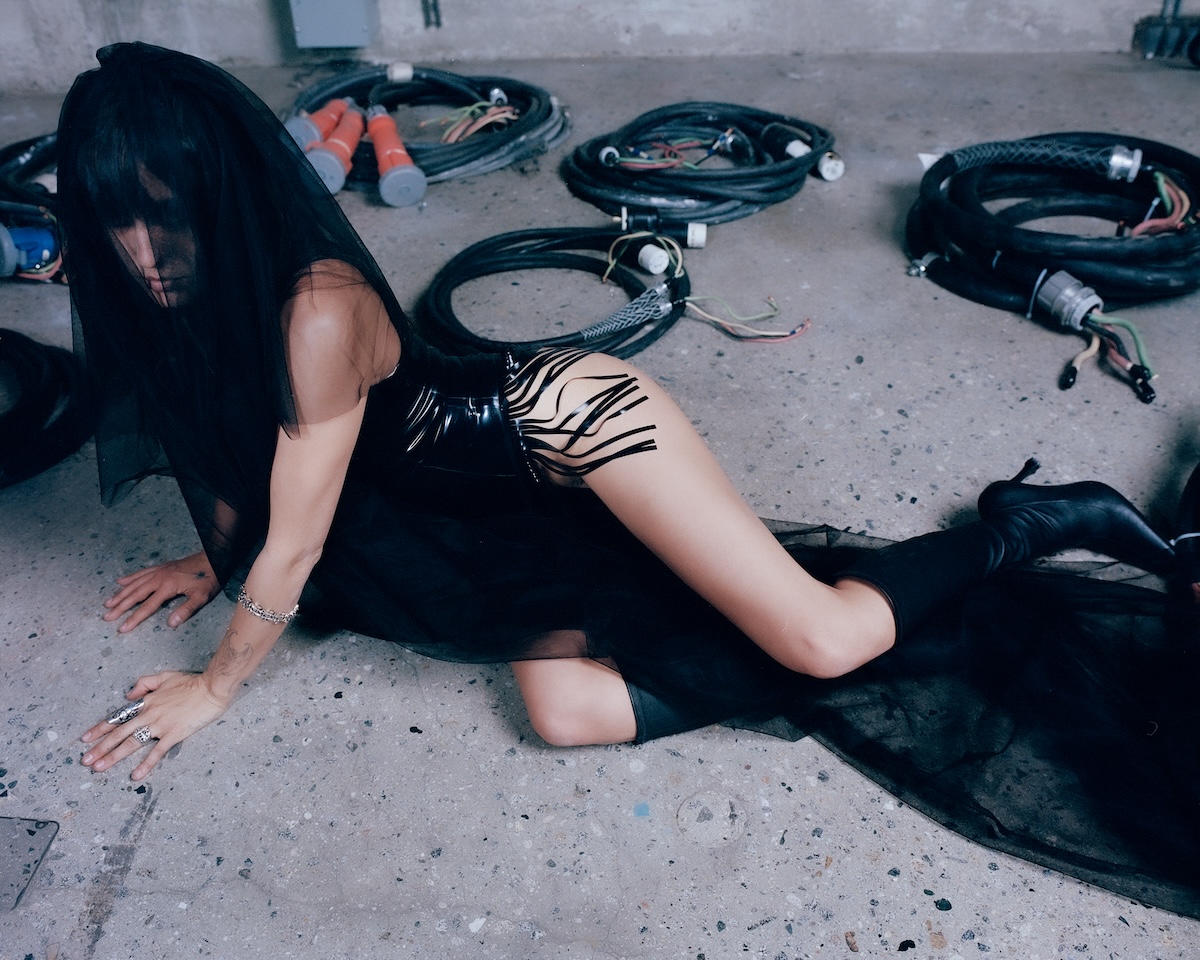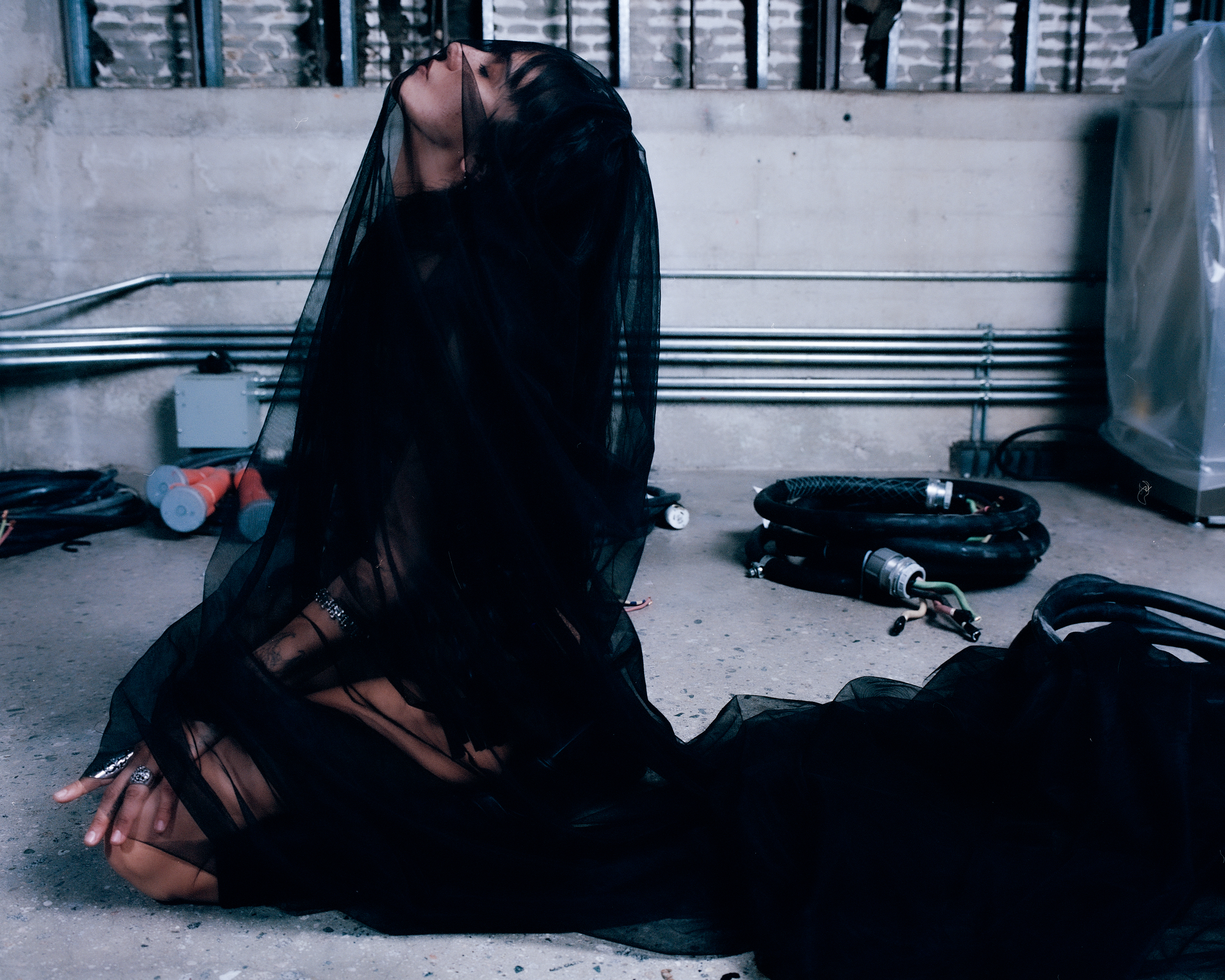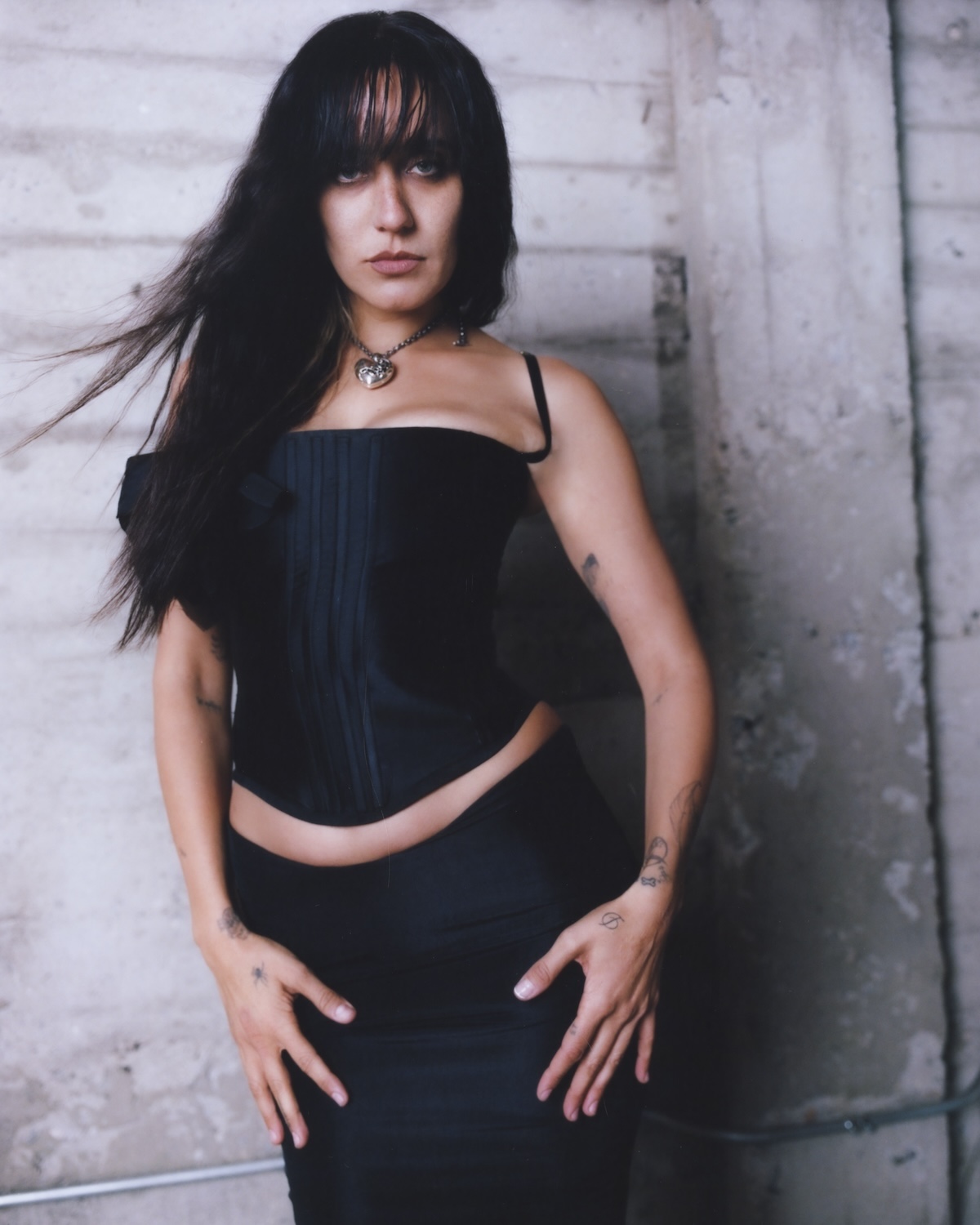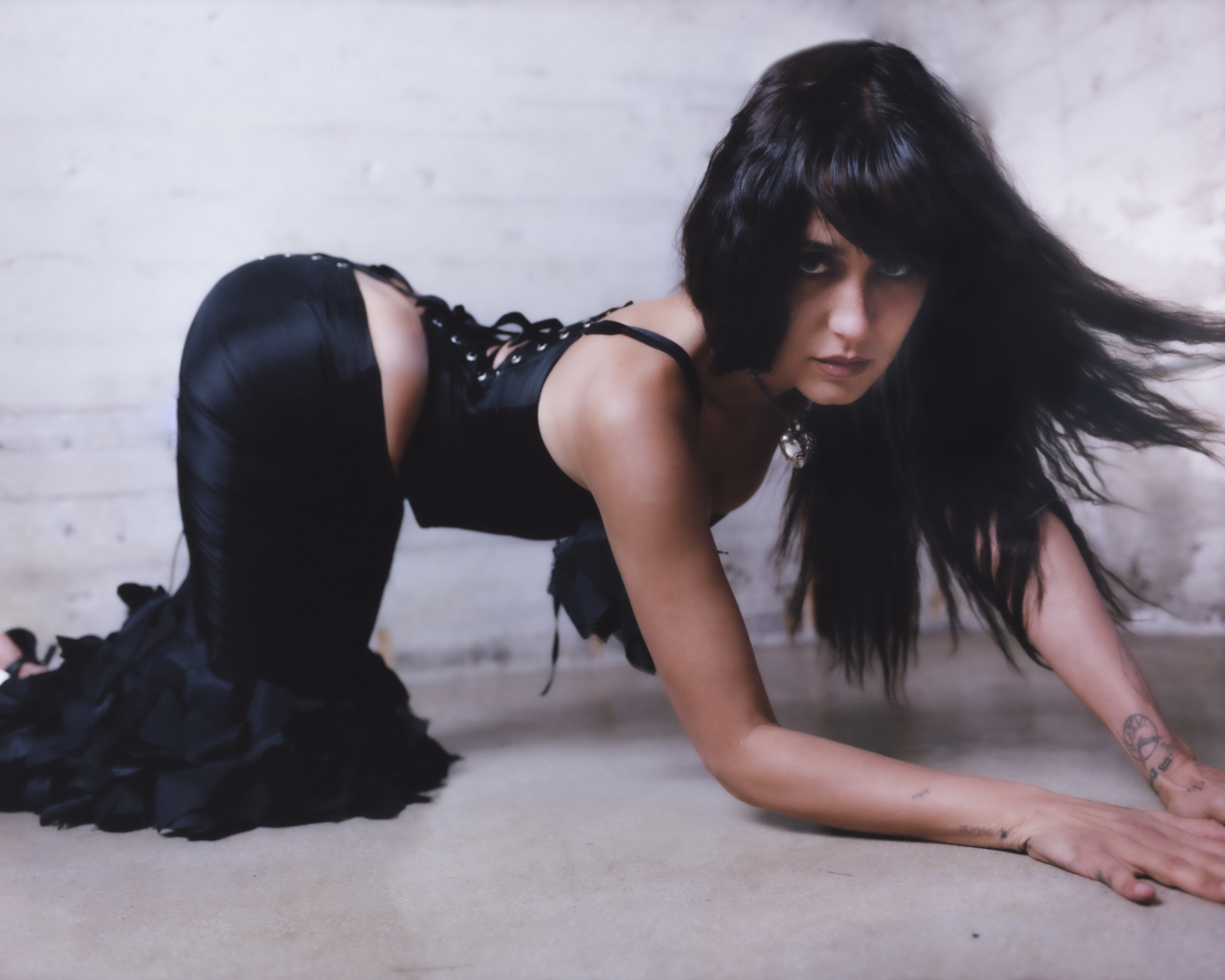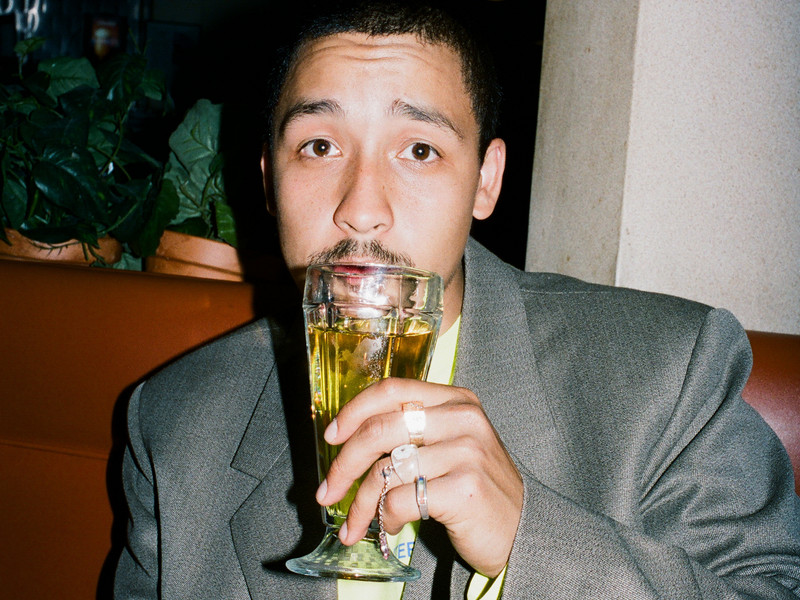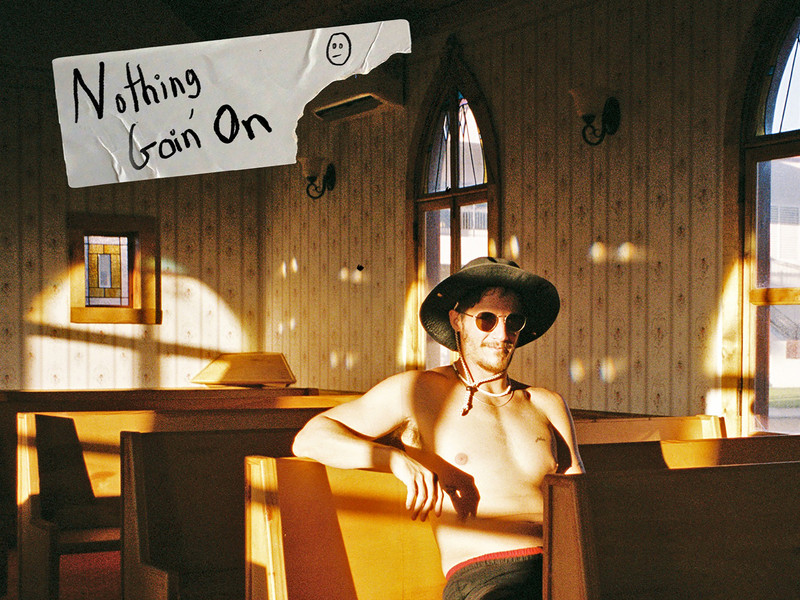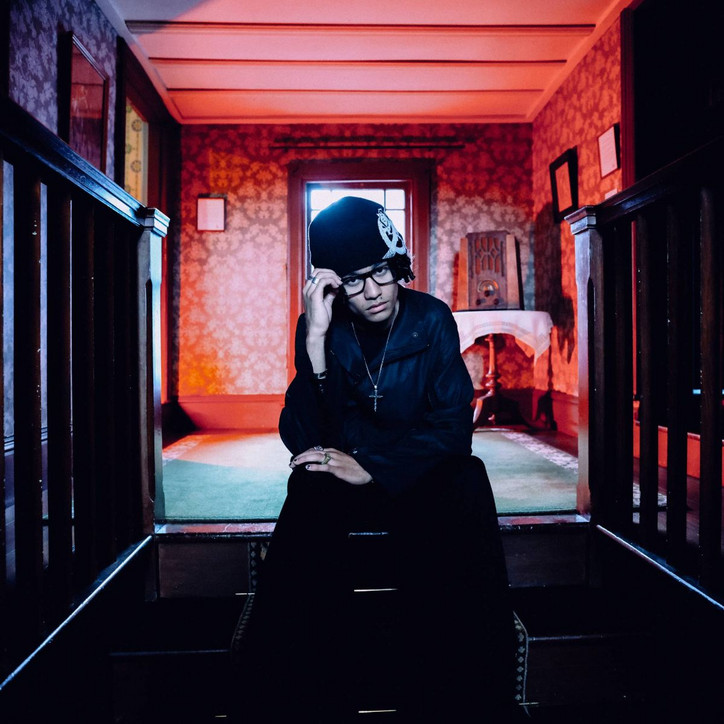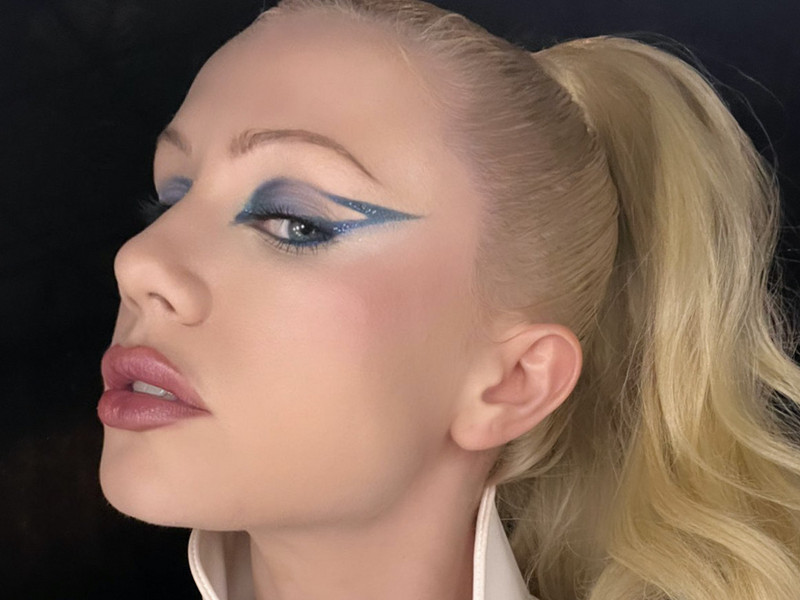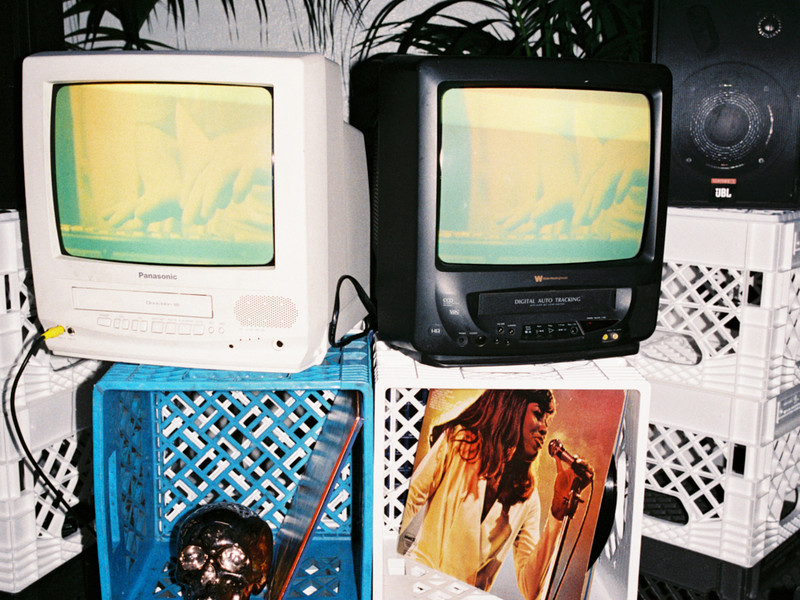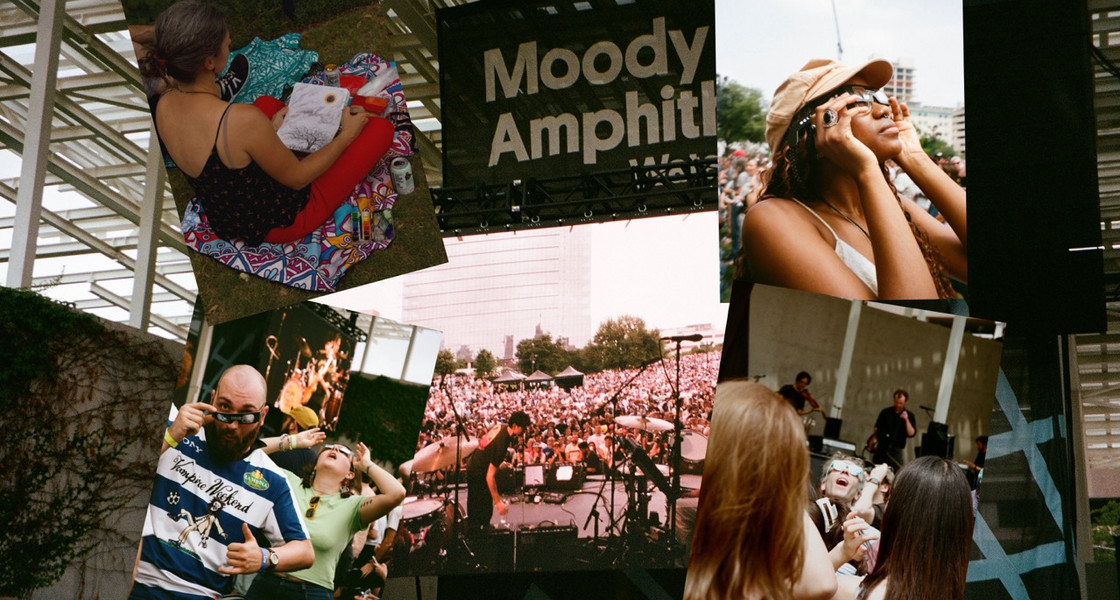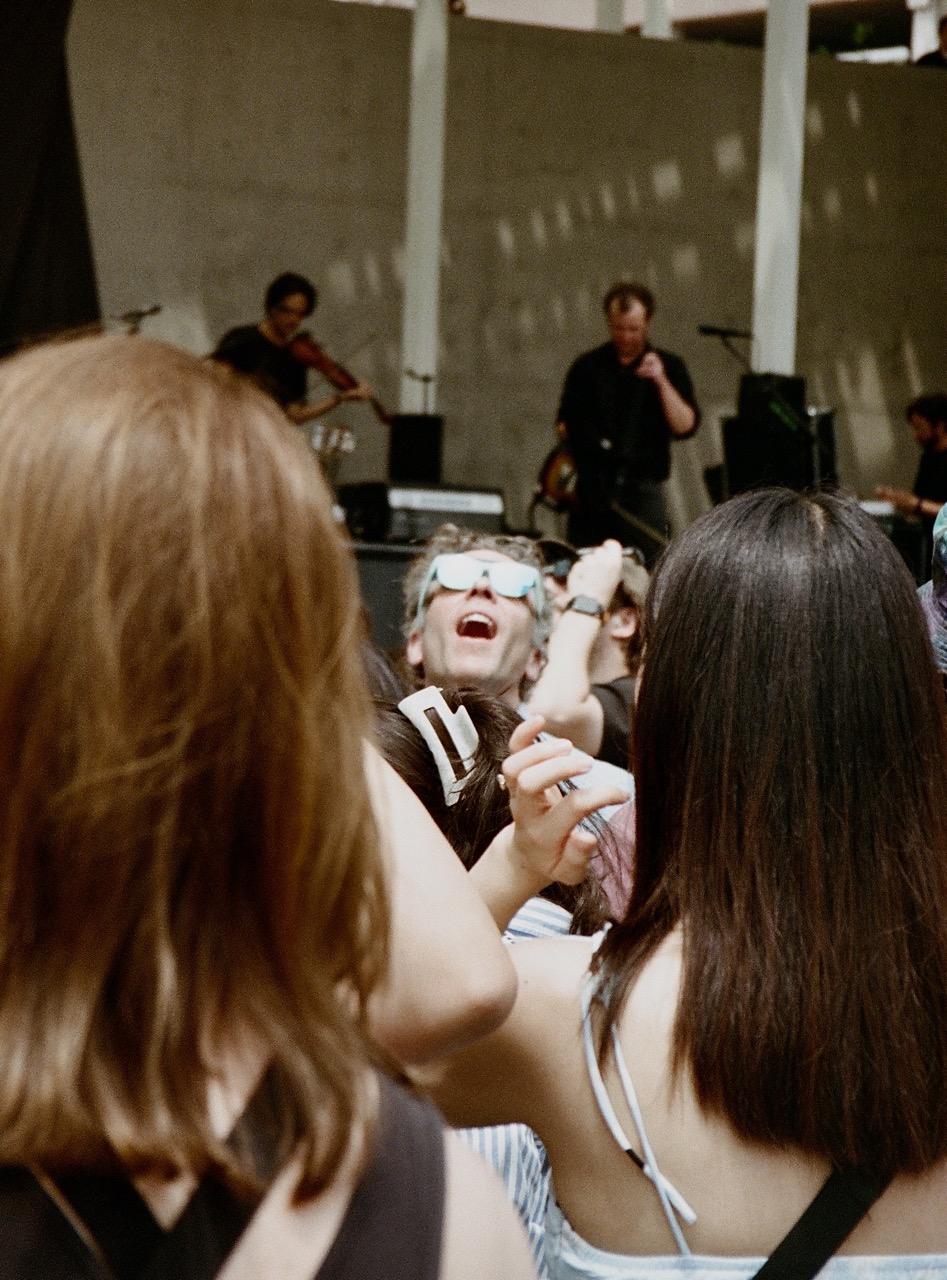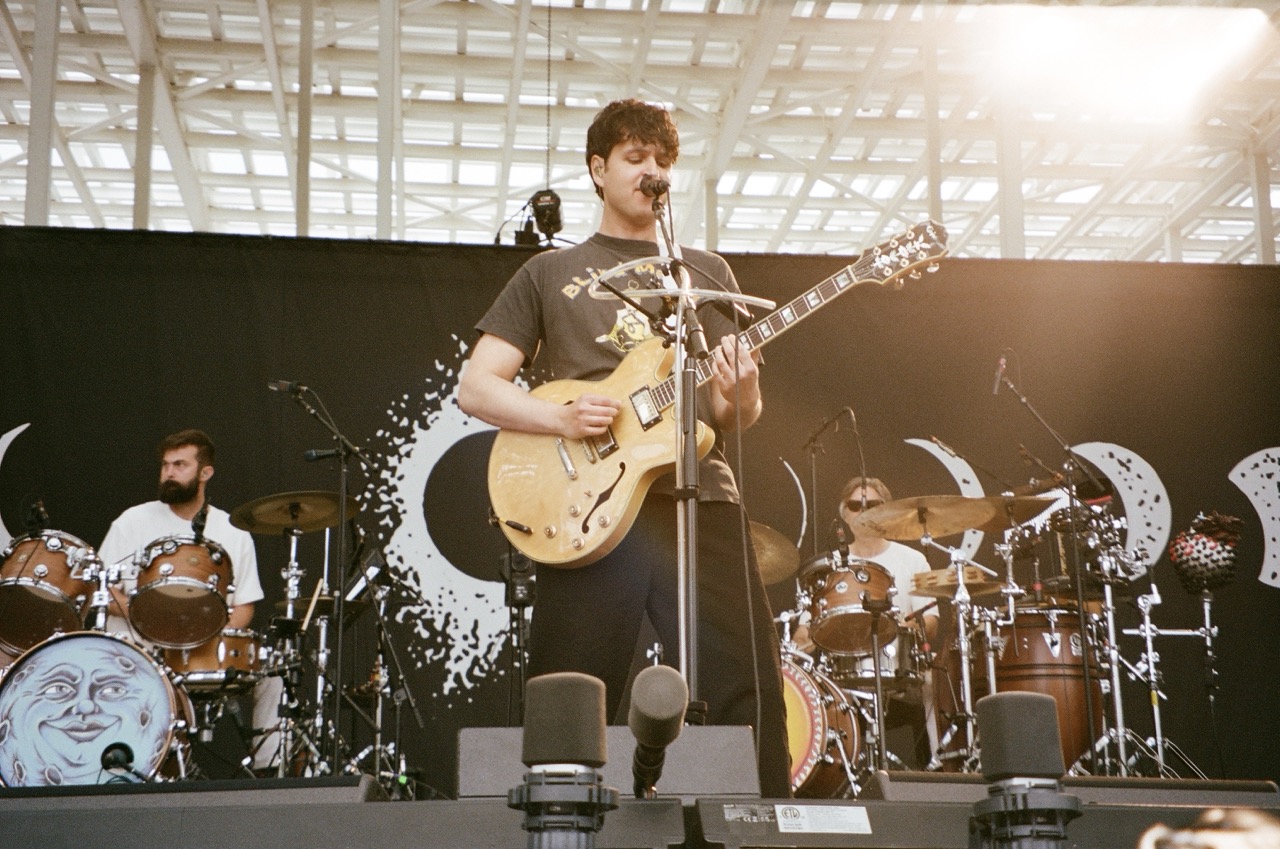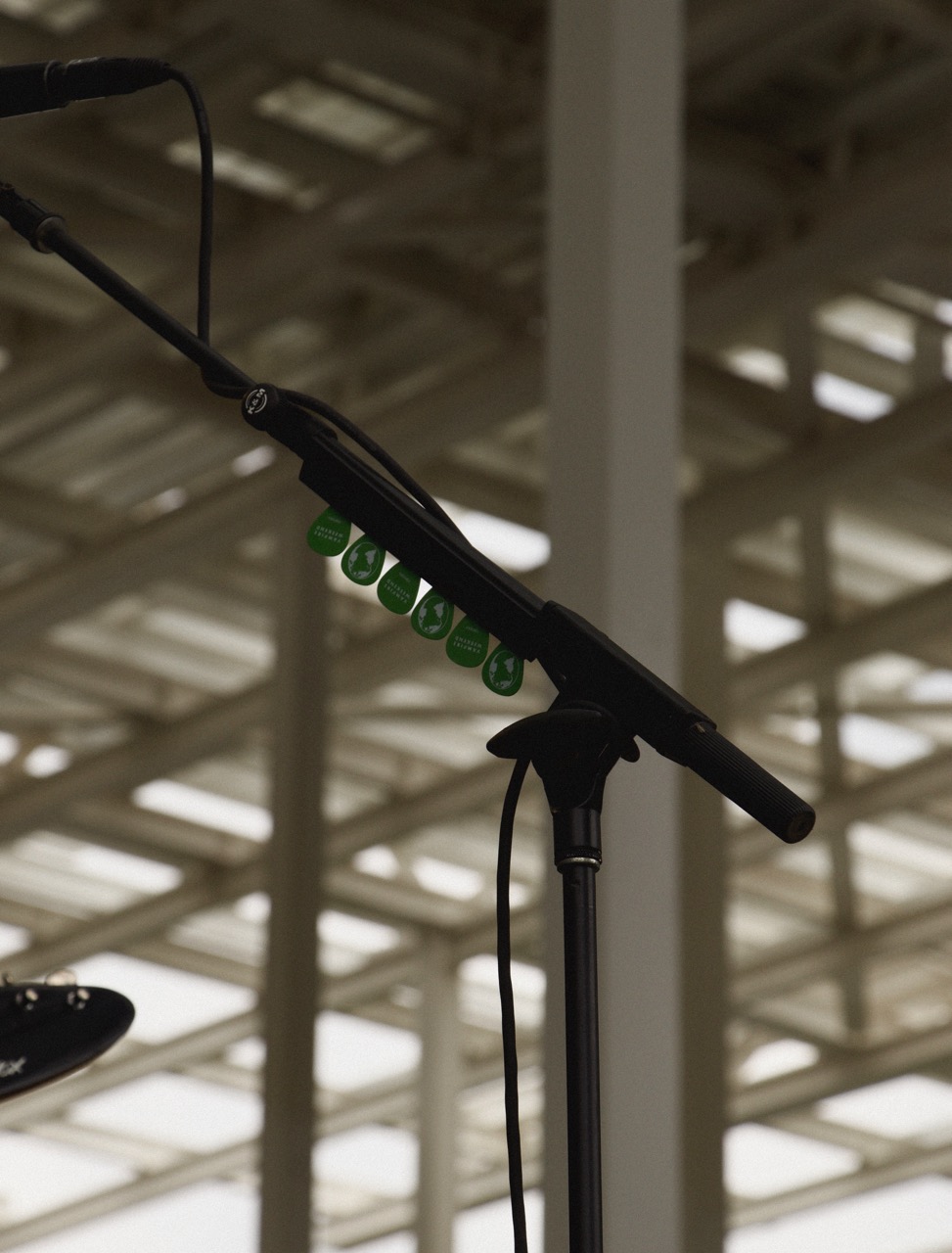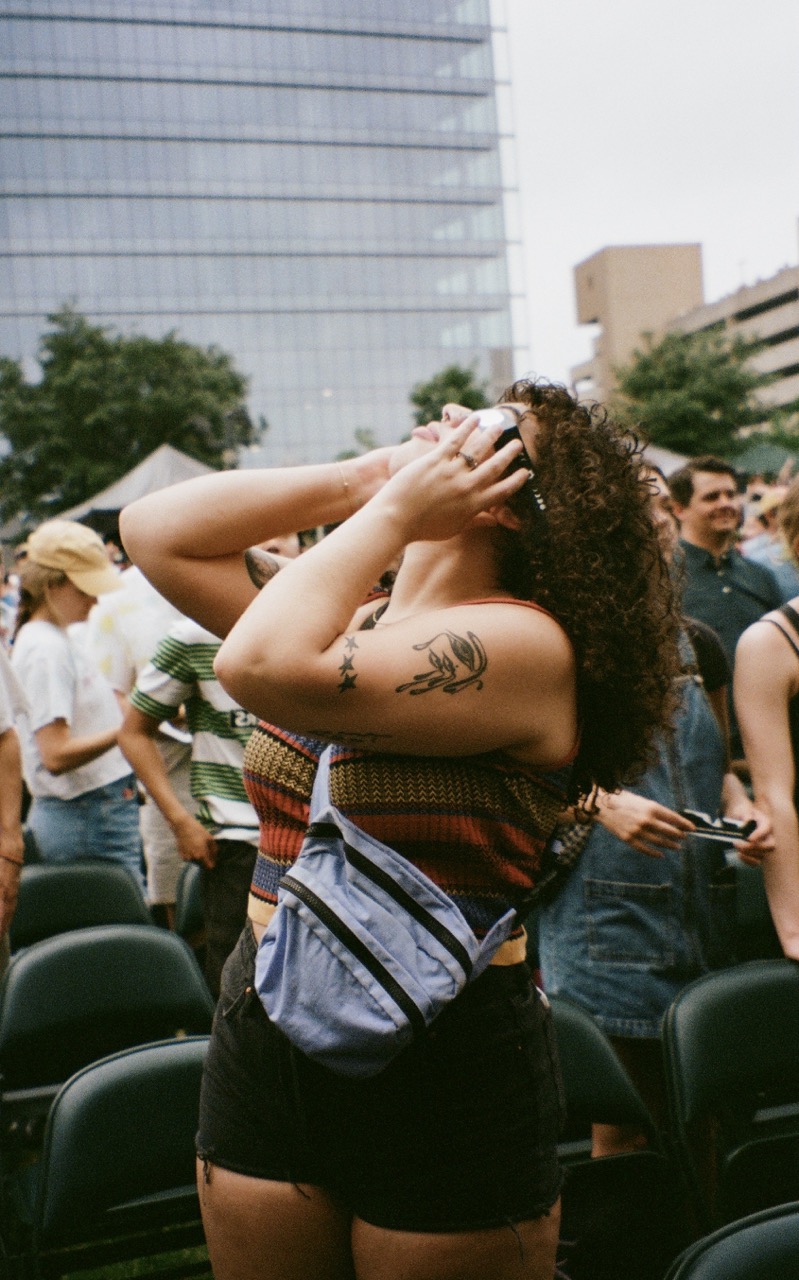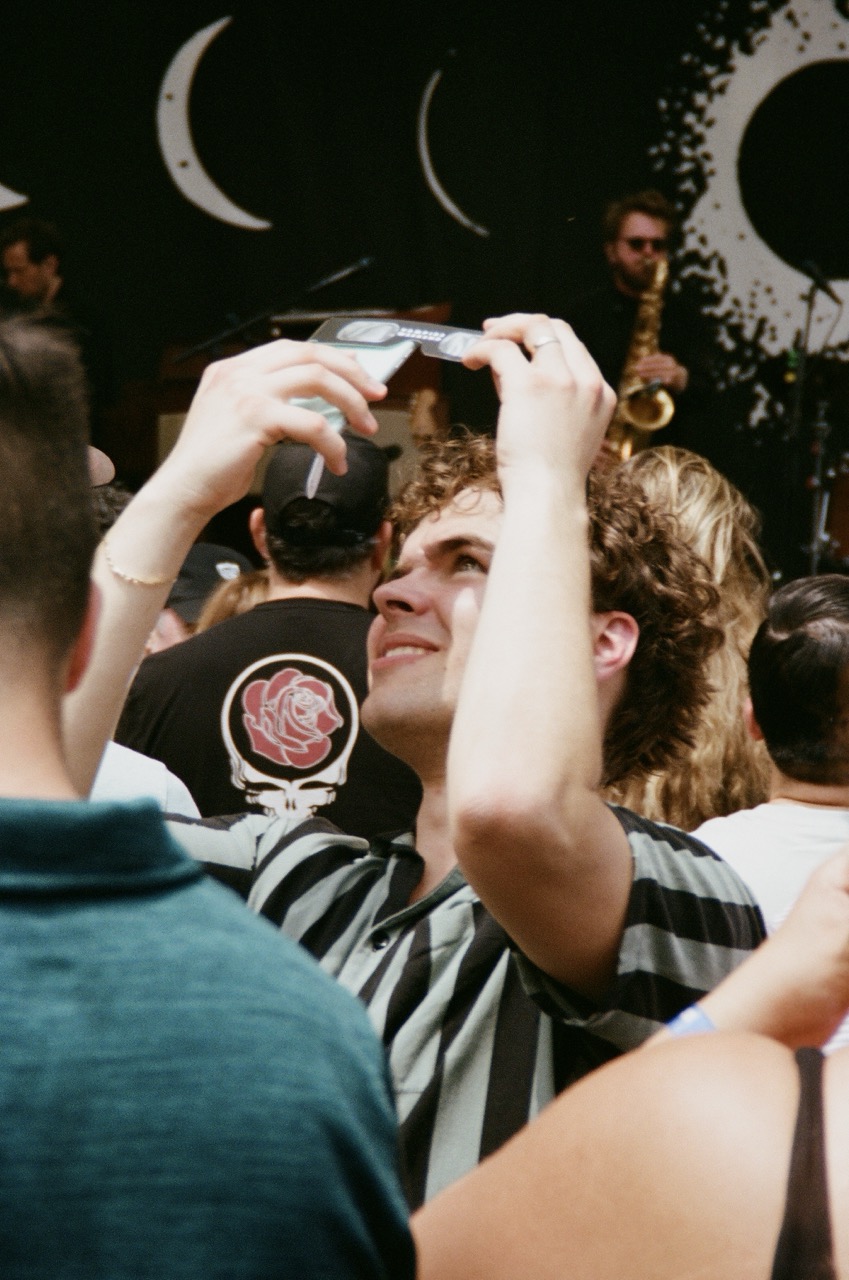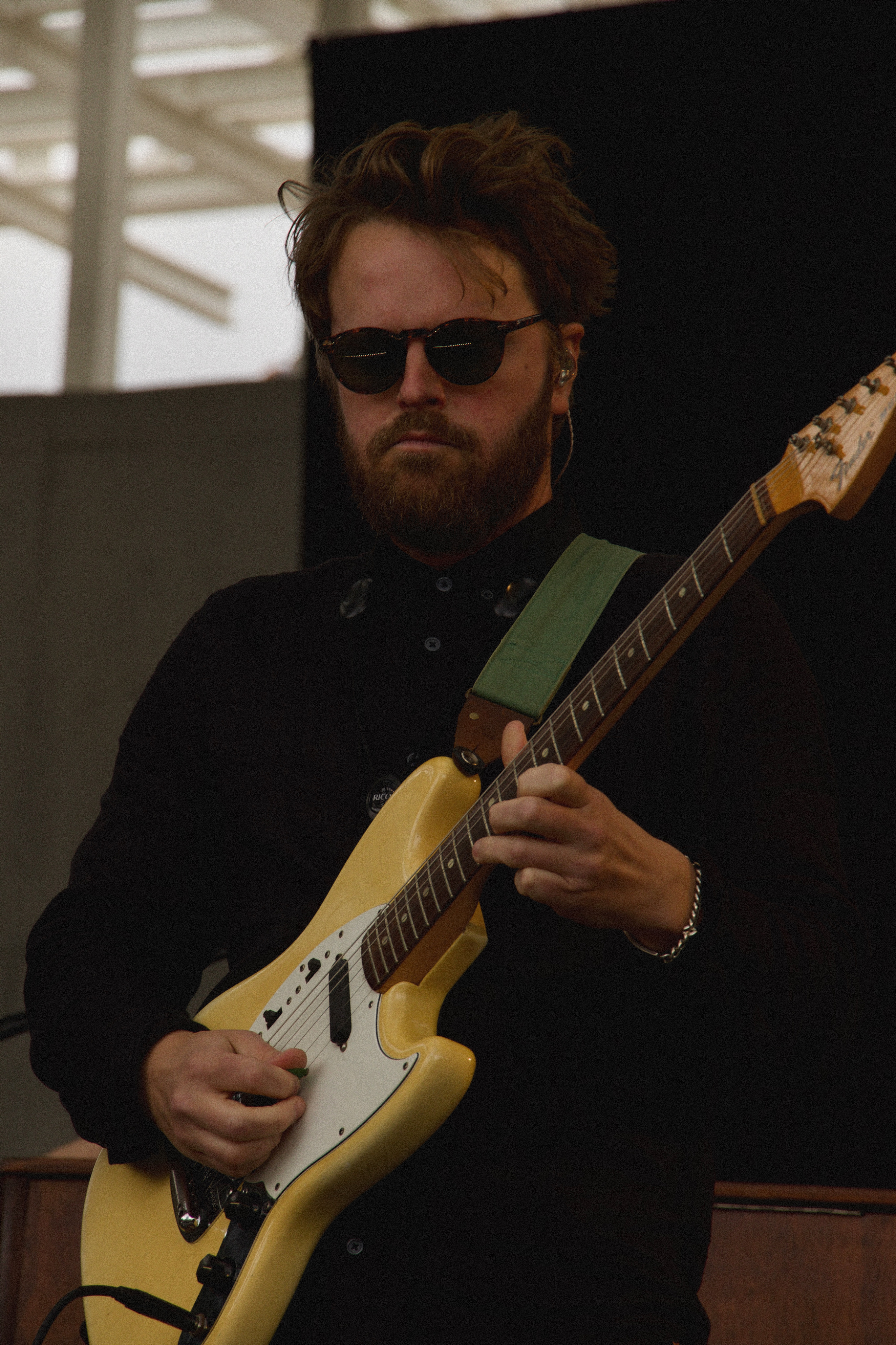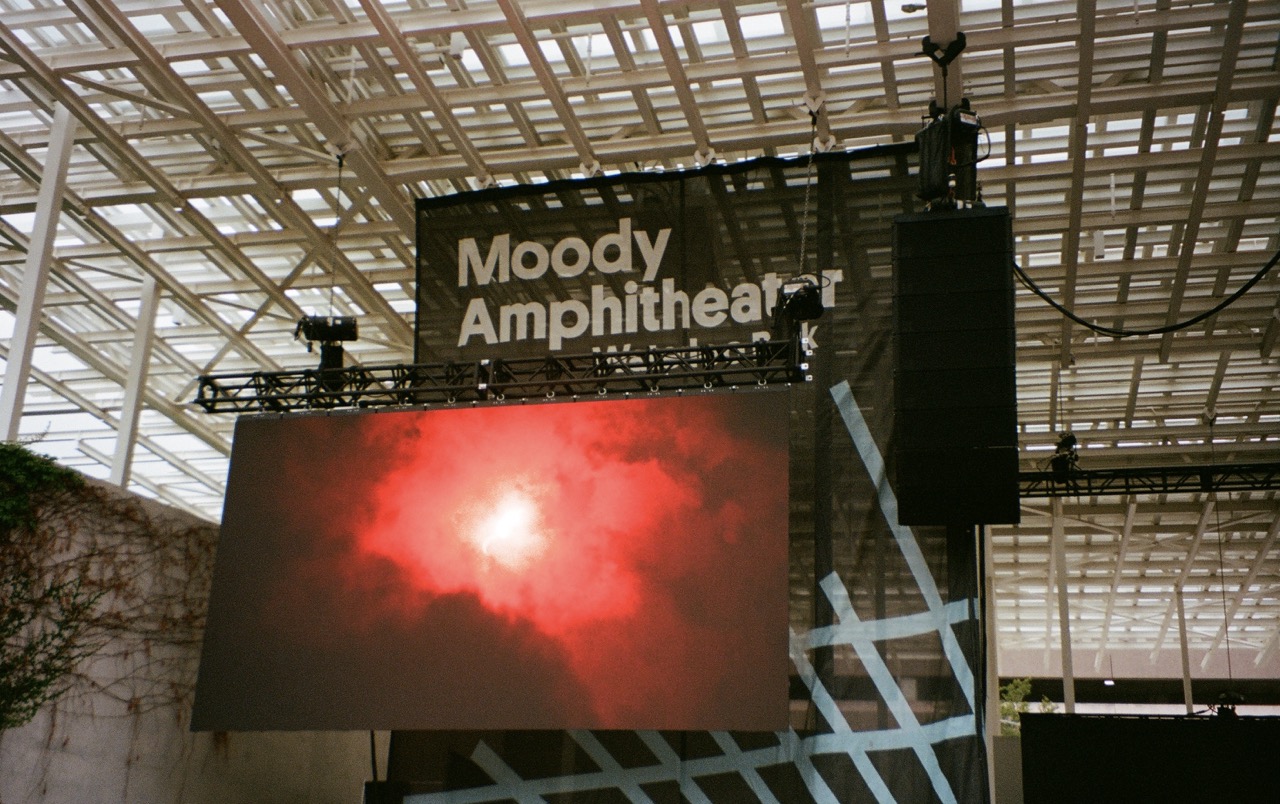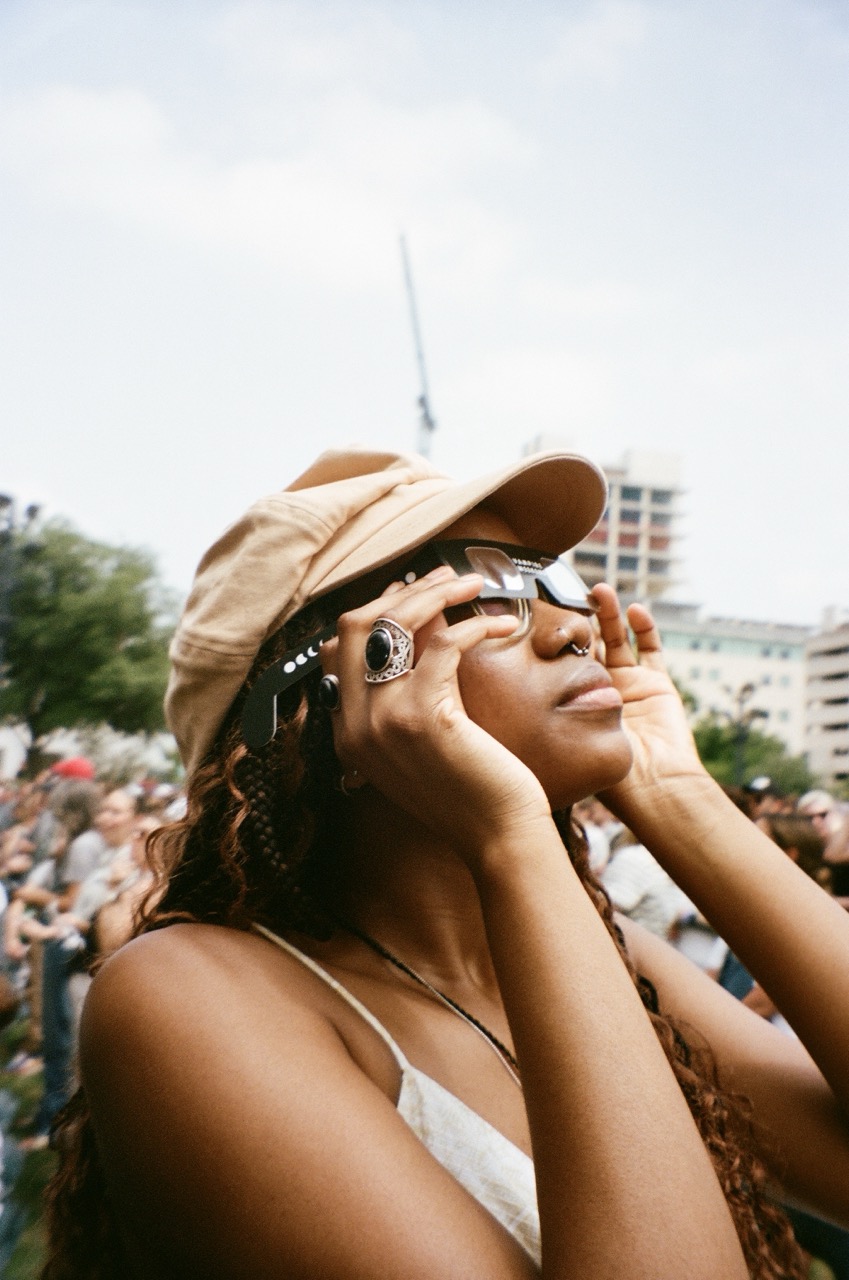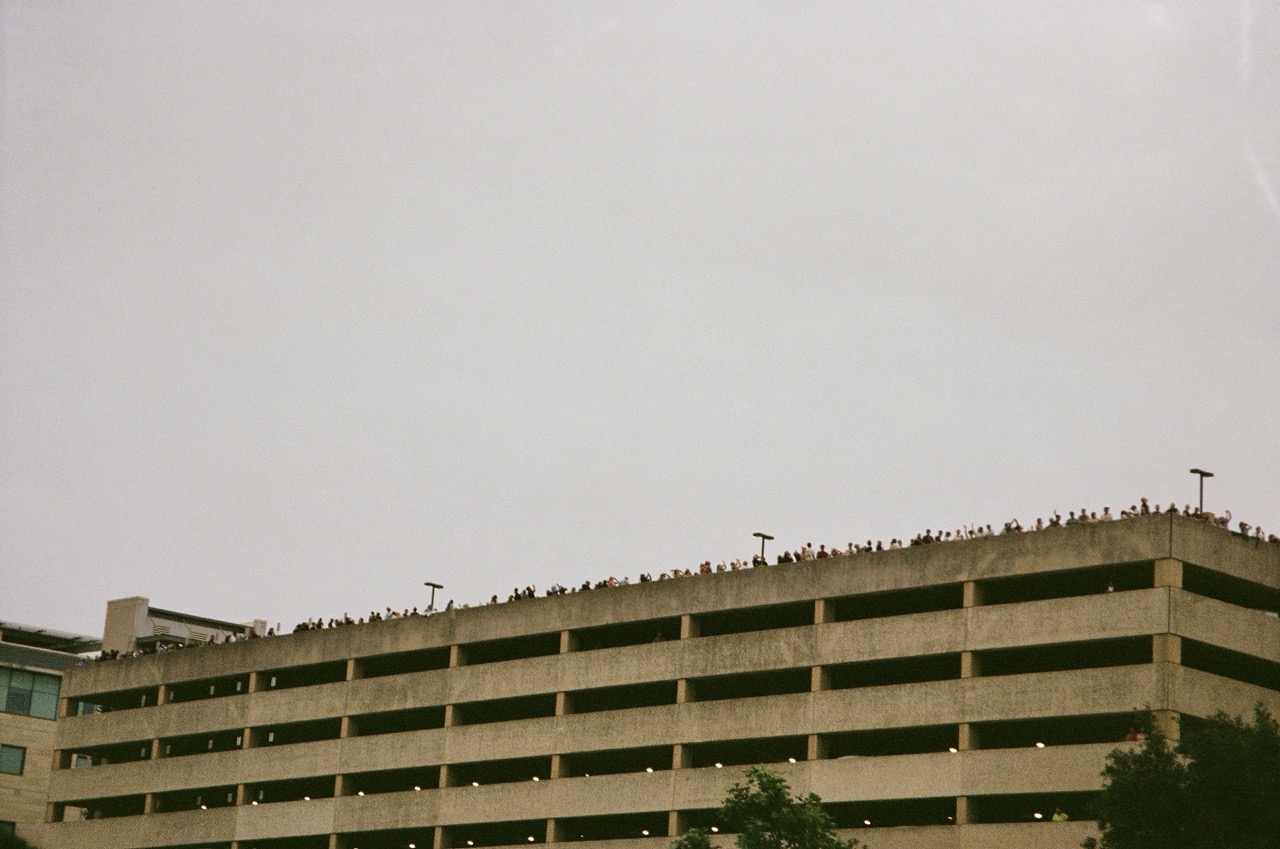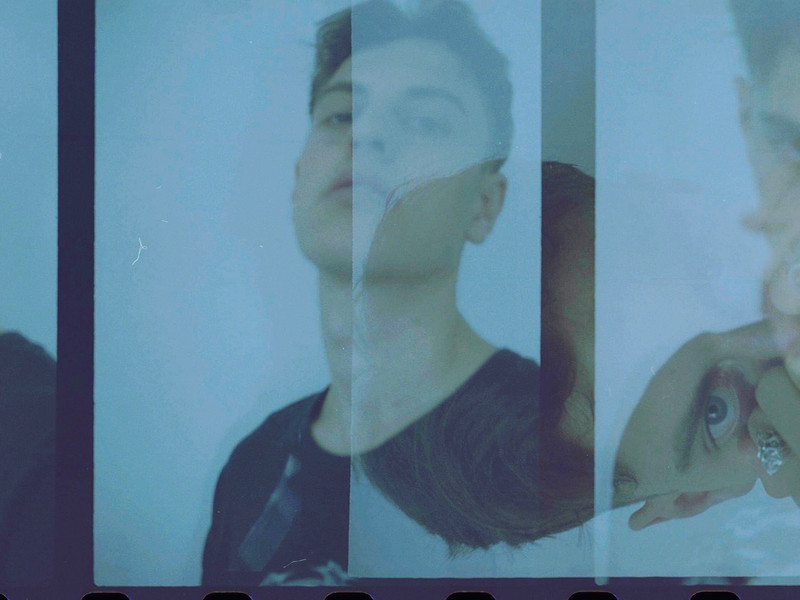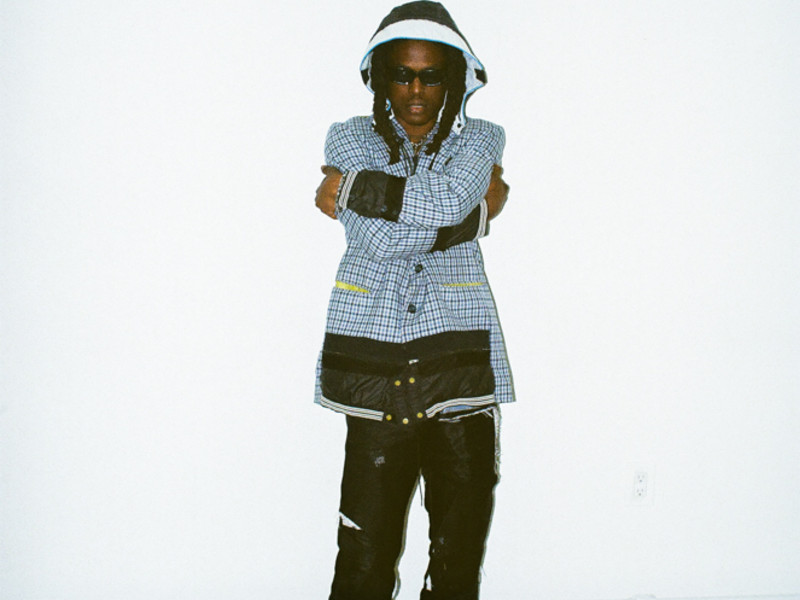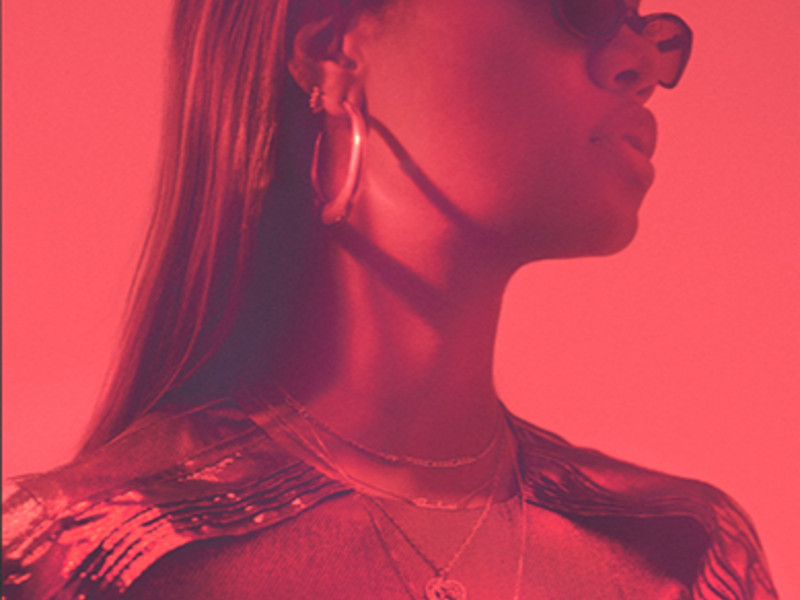Pink Pantheress: Baby, Here Comes The Sound
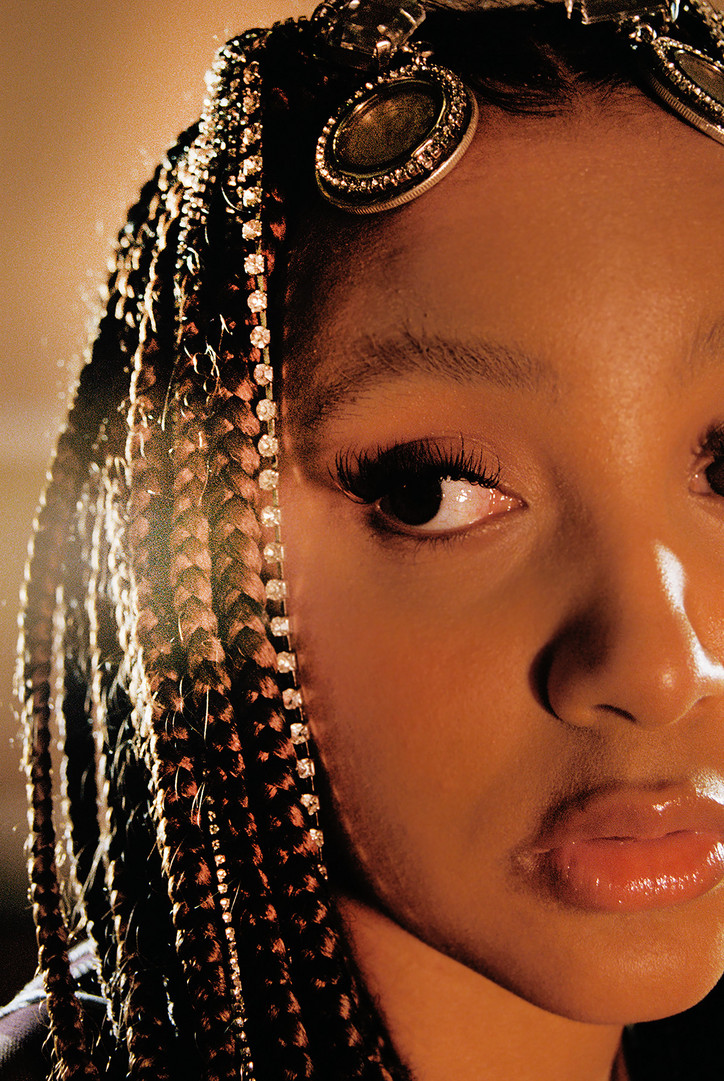
Hair clips ANNA DAMINOVA
On top of her cut-and-paste style, she adds a melody that’s all her own. At 21, not all of these references are nostalgic to her, but they are personal. She’s had her own experiences stumbling upon the artists and genres she uses to create a Pink Pantheress track. This isn’t a Gen Z girl doing Y2K—it’s the lyrical, melodic scrapbook that lays out her love story with music. And it’s a powerful one, as evidenced by the success she has seen in the shockingly short period of time she’s been in the public eye. In the less than two years since Pink Pantheress posted her first track, “Break it Off” on TikTok, she’s had numerous hits on the UK charts, landed two record deals, booked a headline tour and developed an unbelievably dedicated fanbase.
Back in Los Feliz, I sat down with Pink Pantheress in person. After a warning that, counter to the current culture she is very much a part of, her real name would absolutely not be revealed or mentioned—though the answers, like any, can be found online—and having done enough research myself on her myself to be wary of her very tendency to give up little to nothing else about her personal life barring the hints hidden in her music, I was worried it wouldn’t be very easy to get her to open up. Only slightly intimidated, almost immediately I realized the latter wouldn't be an issue… Once I mentioned My Chemical Romance. While she may not have lived through many of their original album drops, two MCR fans are two MCR fans at the end of the day. And when you add that to a mutual obsession with Maison Margiela, all barriers melt away.
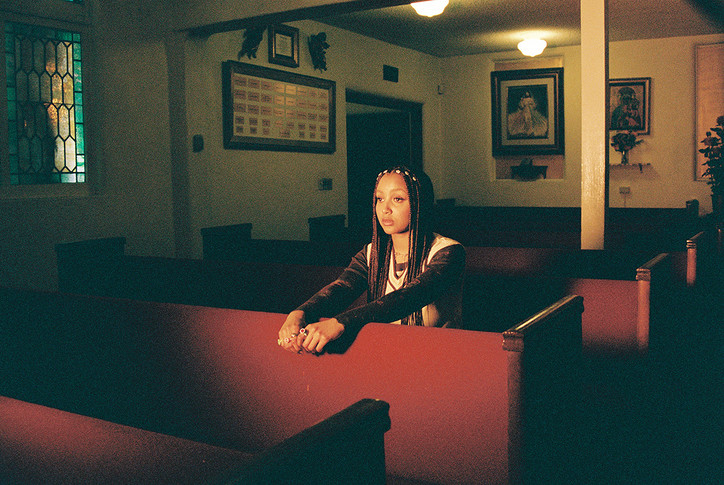
Top FRATER, sweater vest DANIELLE GUIZIO, rings SANDY LIANG, hair clip JENNIFER BEHR, necklace MARLAND BACKUS
Being from outside the city, in Bath, how do you like being based out of London these days?
I love London.
It’s one of my favorite cities, creatively. It feels like there's more ‘underground’ culture there than there is here.
A hundred percent… Respectfully. But then in a way, we gate-keep more, which isn't good.
I guess that’s how underground culture survives, today.
That’s very true, but it's not fun when you're a musician. Even as a British person, I was given a hard time for doing British music.
What do you mean?
For example, you've got certain genres that are originally from the UK, such as grime, drum and bass, garage. And the people that were around when they began are ‘purists.’ They don't like it diluted with anything that they don't believe is true to grime, or true D&B, and so on, which is why there are a lot of artists now that struggle to be taken seriously. Earlier on, I was definitely one of them. But in the end, it was fine—once you make clear that you respect where it's coming from and you truly understand the concept behind it, no one can really say anything.
I guess part of the process for anyone coming up is facing push back… Can you tell me more about what you dealt with? How the ‘purists’ reacted to your music, and your choice to sample American songs?
It actually has to do with sampling British music. My first biggest song, [“Break It Off”], sampled a really big drum and bass track in the UK. Half of them cared because they don't really understand sampling—they think that sampling is just stealing—and then the other half are true D&B fans who don't really want the sound to necessarily reach places like America.
Or the internet?
Yeah, Gen Z. It was something I felt like I had to tip-toe around—I had to make sure the internet understood where it was coming from when I sampled it, and make clear that there are way more D&B artists that deserve the attention as much as, or more, than me.
What kind of music did your parents listen to when you were growing up? What were you exposed to? How did you discover D&B, or garage?
My mom listened to Kenyan music, and Michael Jackson, and Queen. And she would play those Now, That's What I Call Music CDs in the car. Then my brother got me into Tyler, the Creator and stuff. When I was young, I was one of those annoying kids that really wanted to be different for some reason—I was obsessed with being different. So, when I found Goblin in his room and listened to it, I was like, Yeah, no one's going to understand this. I didn't really understand it either, to be honest, but I still got the CD and played it as if I got what he was talking about. And that was the start of enjoying alternative music.
You’ve credited pop punk as a huge reference for you. When, and where, did you come up on that?
There was a talent show in my secondary school, and someone in the year above did a drum cover of “Welcome to the Black Parade,” and I just loved. I actually was like, I've never heard anything like this, it's so good. I went up to him and asked who it was, and when he told me My Chemical Romance, I was like, Okay, I'm going to get into them. So I got into them—really hardcore. Then, obviously, I found the other bands along the way. But I never got into underground punk.
It's almost underground, though, given the context and generation that you're a part of! That music wasn’t coming out at the time, and this resurgence we’re seeing with When We Were Young Fest and so many of those 2000s bands announcing headline tours again has only been happening in the last few months. When was it that you decided to start making music yourself, and what sparked that?
I was 17. My friend wanted to sing, and I always wanted to do music, but I didn't want to be the singer. I've always been shy and I really never liked attention like that, especially not during school. And so I decided to produce for her, even though I couldn't really produce—I literally just went onto GarageBand and taught myself. Eventually, though, I got to a point where I was like, Okay, I really feel like I could just do this, and do it better.
You wanted control, and agency, over the work.
Right. She was great, but I felt like I could do what I wanted to do better without using her as a vehicle. So, I started singing, and that was just like, a little a over a year ago.
That's crazy. So recent! What was your relationship with TikTok, at that time?
I just used it to put up my songs and that's it.
Did you see other people doing that?
No, I really didn’t. And I'm not saying, like, ‘I started this,’ because I didn’t. I knew that Lil Nas X and Doja Cat were using TikTok to get their songs to do really well, even though they themselves weren't on it. But when I would go on SoundCloud, I struggled to understand how people got an audience, because I didn't have an audience at that point. And there is no algorithm there. So, I posted a video on TikTok, and it did really well. And I had zero followers! I was like, Okay, well, if this can work for random videos, then surely it will work for music.
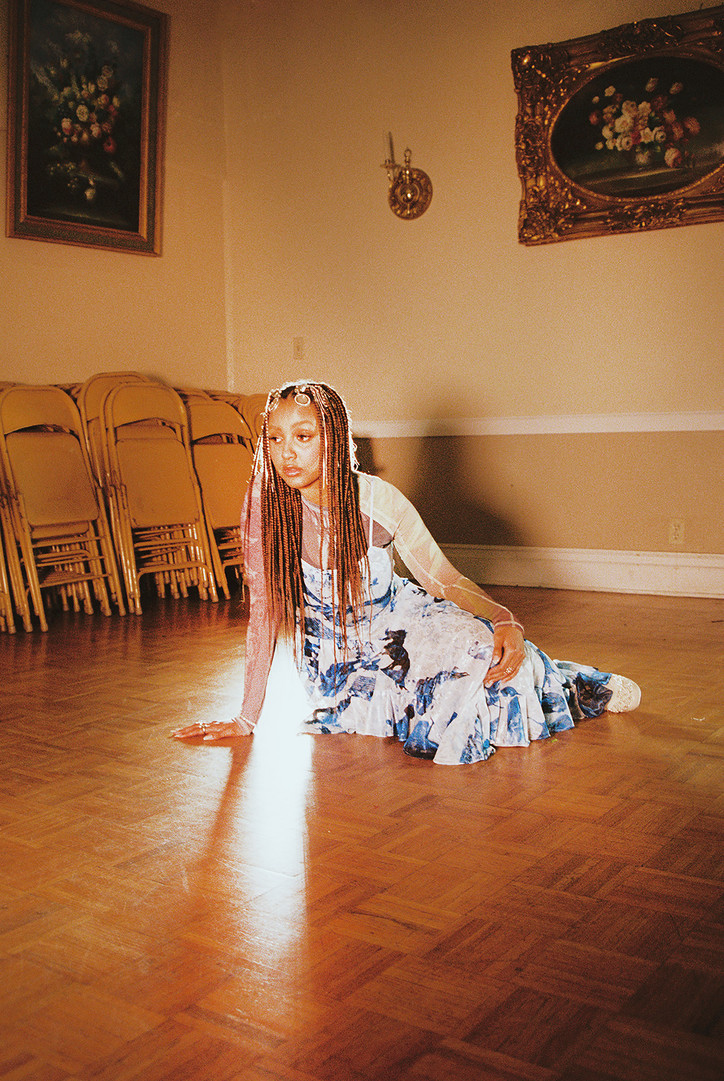
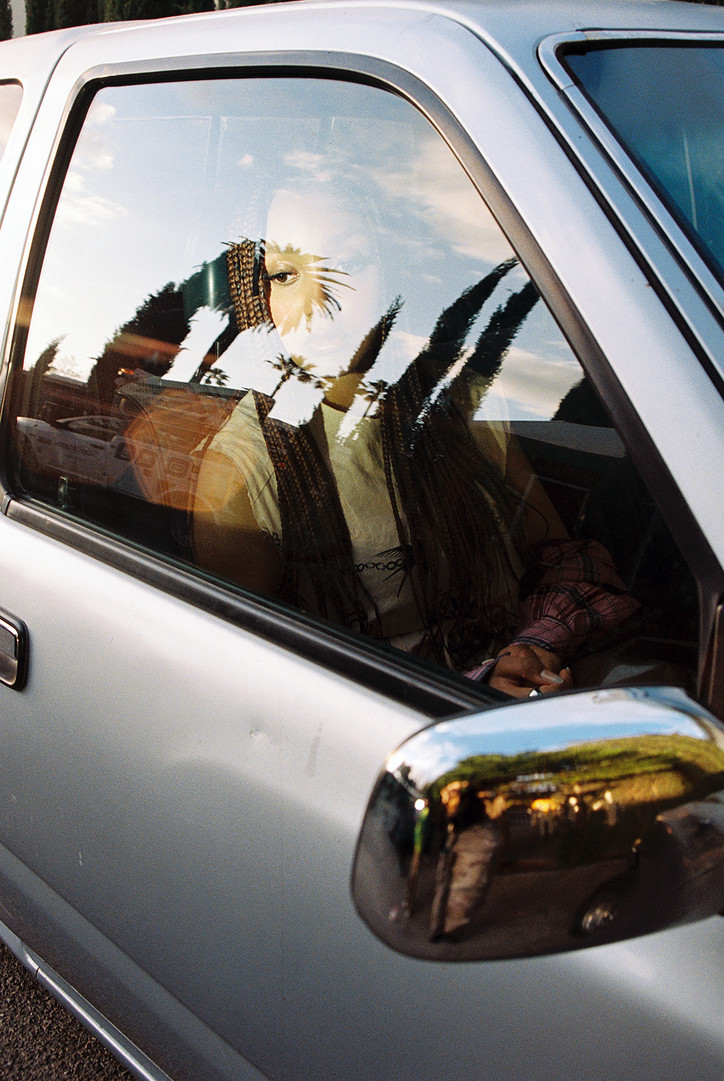
Left: Shirt DANIELLE GUIZIO, dress COLLINA STRADA, shoes SIMONE ROCHA, bracelet MUDD PEARL, hair clips ANNA DAMINOVA, rings COLLINA STRADA. Right: Top, PRADA
Going back to music purists… It brings to mind the narrative of how music ‘should be,’ because of ‘how it’s been’—the idea that music belongs on a music platform, where the length of a track fits into the appropriate, standardized box. But today, the problem is, artists have to factor in algorithms and the shortened attention span of the modern audience, and it’s a choice between adapting or avoiding an ‘update,’ so to speak. As far as your writing process, your lyrics are pretty vulnerable, emotional. Do you feel like they're self-referential, coming from experience or more about trying to reach your audience?
Honestly, I think it's rarely ever self-referential—I mostly speak to the audience. Gen Z are super sensitive people, and most of my listeners really do exist in that space. In part, I guess I put my business hat on, but I'm not emotionless. I definitely have experienced a lot [of what I write about] first or second hand, having gone to a girls school where there was a lot of drama, a lot of love and failed relationships. I've witnessed it, so I can definitely put myself in some people's shoes… Just obviously not all the way in.
I’m curious about your decision to use a moniker and keep your real name private while showing the world this kind of vulnerability in your lyrics, not to mention doing it all on one of the world’s most public social platforms. It feels like a really intentional and boundaried dichotomy.
It’s about personal distance. But ultimately, it's like, the internet. People are going to find information out, and post it, and they do. It really is just how much you feed into it. Like, if a tree falls down in a forest, but no one has to hear it. I used to get super angry about people finding out my name, but I reached a point where I was like, I genuinely do not care. Because, truly, no one cares. No one cares about my name. Every single person that exists has information online about themselves.
You didn't show your face for a while either! Whether that was for self-preservation, or mental health, or a business strategy, I respect it. It allows people to judge your work before they judge you. And then your fanbase is separate from tabloid drama, branding, or how hot you are. Your work can stand alone.
Honestly, at first, I just didn't want people from my hometown knowing it was me—that's why I hid my face. But you’re right, actually. It became about letting them judge my music before they judged me.
As someone who started out via TikTok and has a Gen Z audience, how do you feel about the idea of trendiness, and the speed at which things get hyped and fade away?
Funny enough, that is actually something I was conscious of from the beginning. I'm aware I’m Gen Z, and obviously we can't have something for too long, otherwise it gets boring. I get it. So I was like, I'm going to just try and make more than one song that does well. Consistency is the only thing, because you can make an amazing song—the best song of your life—but if the next song is like, ‘Eh,’ it's a bit awkward. My whole thing is, As long as I make them consistently good, I don't really care if they are the best songs.
Really, the TikTok element of your music is kind of irrelevant. Because any artist, at any time, on any platform, wants to be more than a one hit wonder. Maybe things move faster today, but it doesn’t discredit that you all just want consistency, and quality, in your work.
Exactly. One hundred percent.
Do you feel like sampling is something you’ll continue to use in your work going forward?
I definitely want to move away from it a little bit. It's never going to 100% be mine, or something that I can say is mine, because someone else has been involved with the original synth, or the original drum loop or whatever. I want to be able to make new songs, which people really haven't heard before, and can listen to and be like, ‘Yeah. That's all hers.’
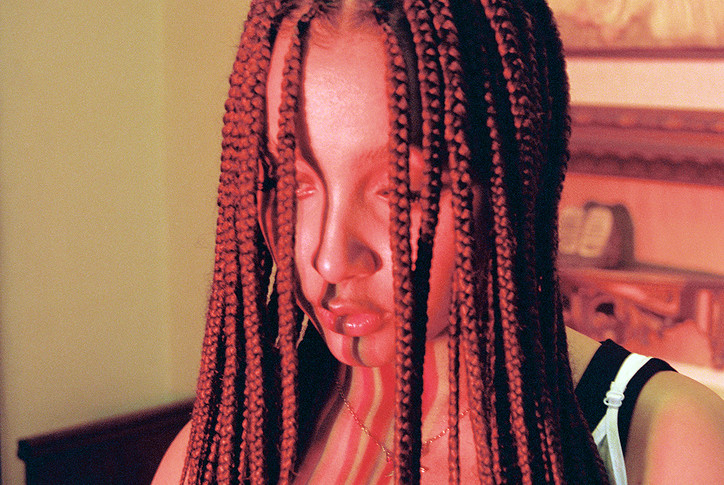
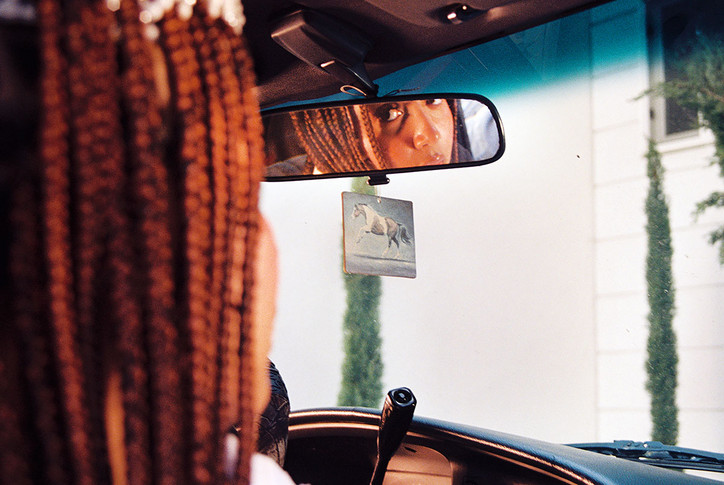
Tiara SIMONE ROCHA
